India has emerged among the more resilient countries against the Covid pandemic, turning the chal lenges posed by it into an opportu nity Gol's adherence to the ethos of responsible governance and cooper ative federalism is reflected in the levels of financial support provided to state governments, despite a 500% increase in crude prices since the pandemic low and the volatility due to the war in Ukraine. These factors put considerable burden on India, as it imports almost 85% of its petrole um requirements.
Even as India is rapidly enhancing its renewable energy (RE) capabili ties, per capita demand for energy will be even higher in the medium term, until India transitions to a green economy. On its part, Gol has ensured that price rise in petrol has been as minimal as possible. Betwe en April 2021 and April 2022, petrol price rise in India, at 16%, was the lowest among the US (50.6%), Cana da (50.7%), Germany (50%), Britain (58.9%) and France (33%). Similar differences in price rise are obser ved for diesel, with India registering the lowest.
Price rise of petrol during 2014-22 of 36% (77 a litre to 105 a litre) isthe lowest among comparable peri ods in the last 42 years-60% during 2007-14 (48 to 77); 70% during 2000 07 (28 to 48); 55% during 1993-2000 (18 to 28); 125% during 1986-93 (8 to *18); 122% during 1979-86 (3.60 to 8): and 140% during 1973-79 (1.25 to 3).
Petrol prices were deregulated in 2010, and diesel prices in 2014, be coming market-driven since then. Despite the revenue deficits induced by the pandemic, Gol reduced excise duty by 5 and 10 a litre on petrol and diesel per litre respectively in November 2021.
Even as most state governments followed suit to cut value-added tax (VAT), states such as Maharashtra, Tamil Nadu and Jharkhand conti 5 nued to levy excessive excise duties.
s ironic that the same Opposition protesting against the price rise chooses to levy the highest rates of VAT on fuel across India. Many non BJP-governed states earn twice as much as some BJP-governed states through state-levied taxes on petrol.
On other important petroleum inputs such as aviation turbine fuel (ATF), Maharashtra and Delhi con tinue to levy up to 25% VAT. This, while in Ahmedabad, Gujarat, the VAT is as low as 5%. This results in an inconvenient burden on air passengers to whom the mark-up is passed on, almost entirely, because ATF costs constitute up to 40% of airline operating costs.
Ironically, many of these states wasted no time in slashing their tax es on alcohol and spirits. In Novem ber 2021, the Maharashtra govern ment slashed excise duty from 300% to 150% on imported liquor. In the same month, the Andhra Pradesh government reduced VAT on liquor, from 130-190% to 35-60%. Earlier, in April 2021, the Rajasthan govern ment reduced additional excise duty from 34% to 31% on beer.
Long-term oil bonds worth *1.44 lakh crore were issued during 2005 12 by the UPA government. The cur rent government is now saddled with a bill of 3.2 lakh crore. The UPA government stopped licensing acreage, which caused the oil ex ploration and production to stop. What one expects from the Opposi tion is some engagement in the collective mission of nation-building. Gol has supported state govern ments with both direct and indirect measures, including a higher share of 42% of tax revenues under the Finance Commission grants as well as enhanced post-devolution reven ue deficit (PDRD) grants and higher share of GST collections.
More than 1 lakh crore of interest free loans to state governments have been earmarked under the latest budget. This would reduce state government borrowings through state development loans (SDL). Ways and means advances (WMA) and special drawing facility (SDF) borrowings can be availed at mini mal rates by state governments.
State governments have collected 15.16 lakh crore as fuel taxes over the past eight years. So, it is ironic that these state governments are reluc tant to do their bit to provide relief to consumers. On the one hand, the Opposition is peddling false narrati ves on fuel prices. On the other, it is refusing to reduce excise on petrol y and diesel that would bring relief to consumers in their states.
Gol is conscious of the challenges in the oil and gas sector, and is taking informed decisions to build domestic capabilities. It continues to take a holistic view on the issue, and provide citizens with clarity. transparency and welfare for all.
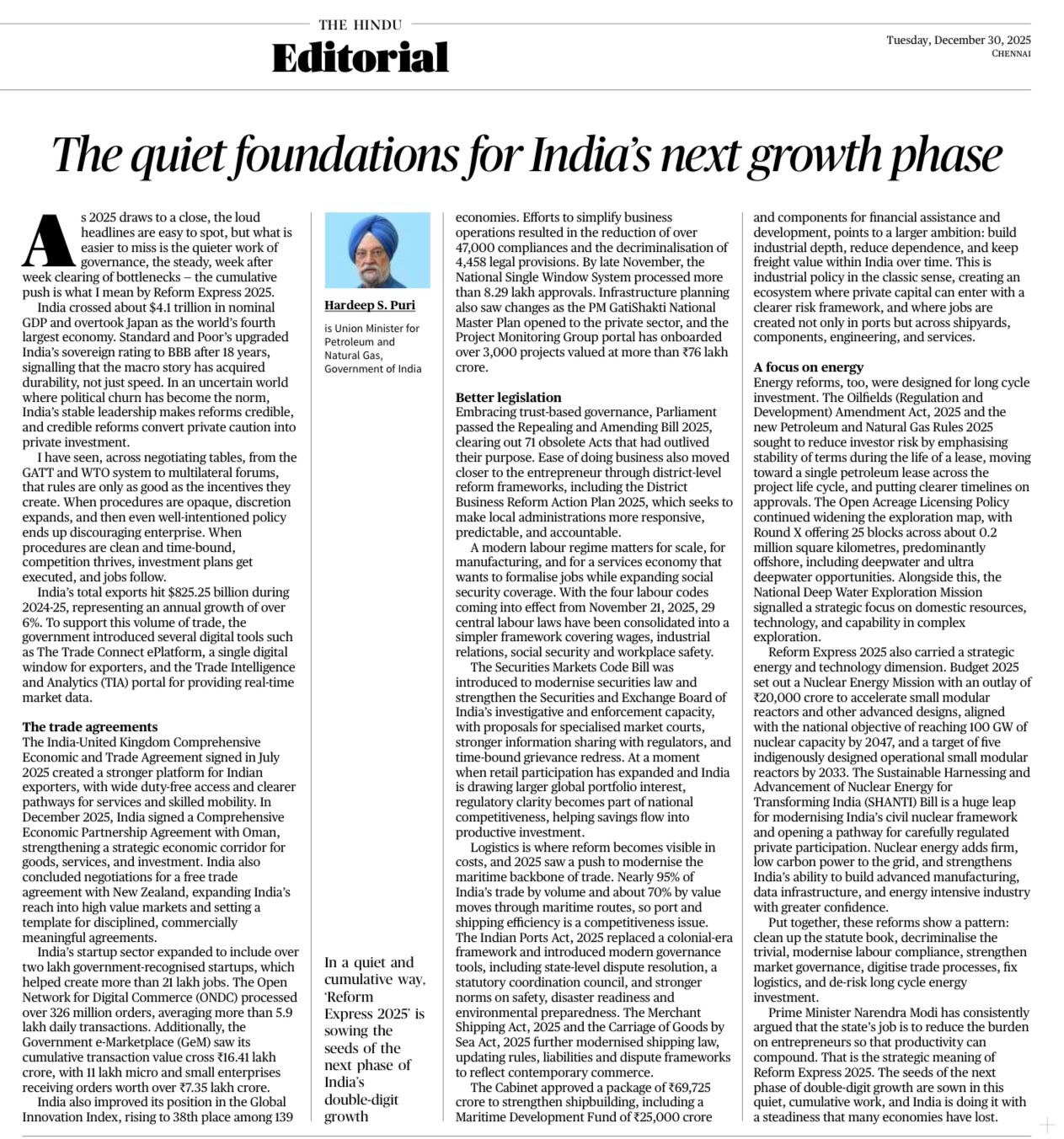
The quieter work of governance, the steady, week after week clearing of bottlenecks - this cumulative push is what I mean by Refo...
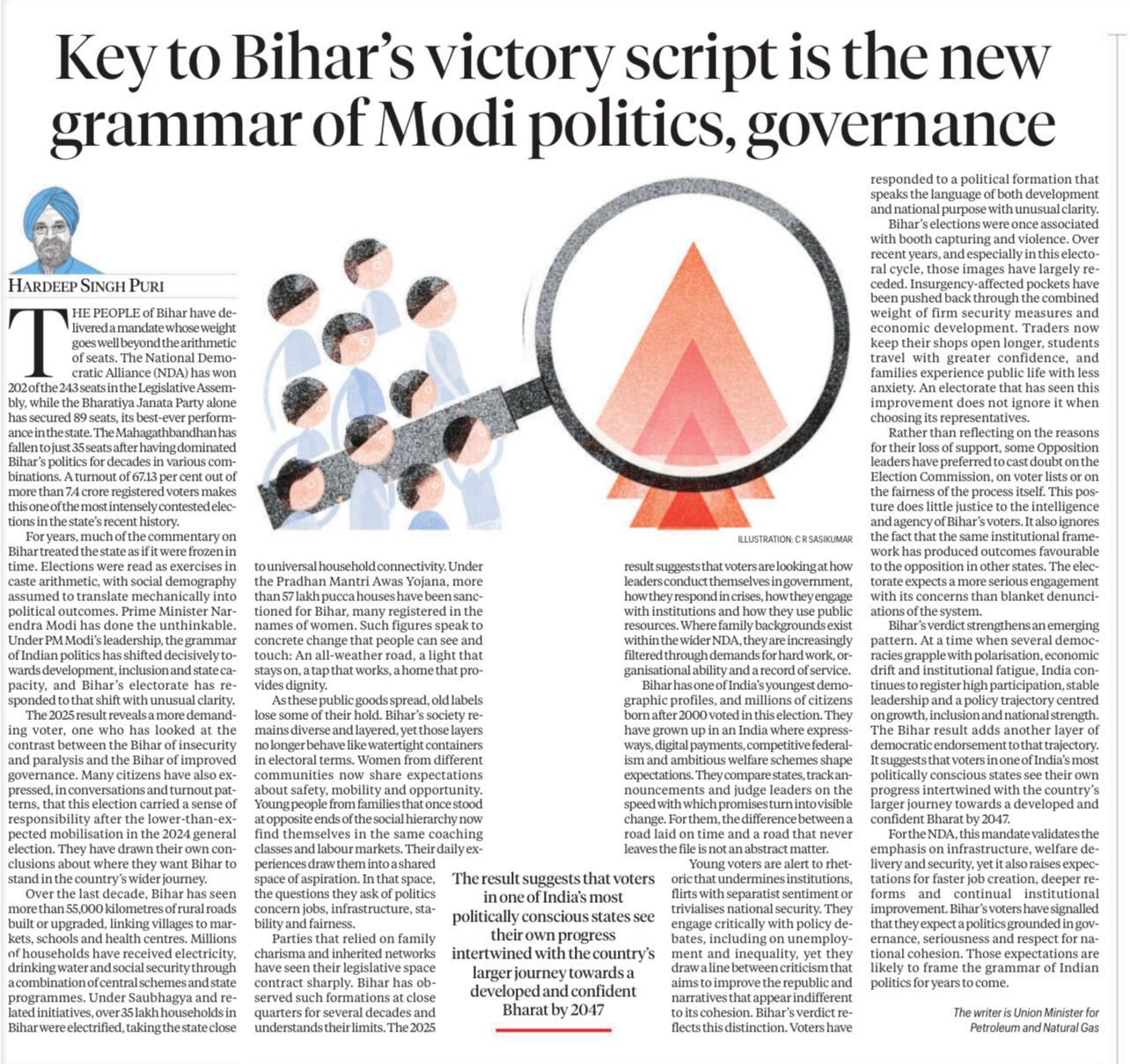
PM Sh Narendra Modi Ji has done the unthinkable in Bihar and it will change the grammar and lexicon of Indian politics for the ti...
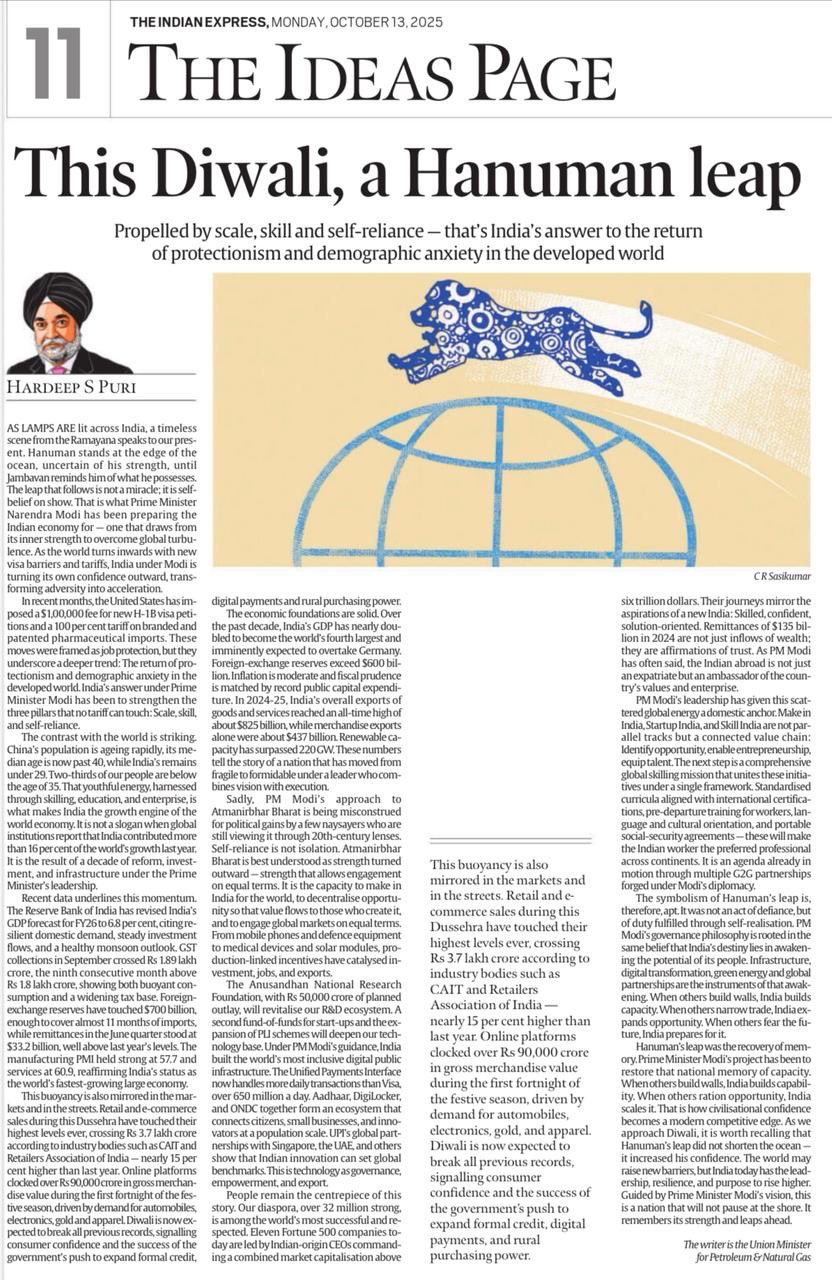
As the world passes through a period of geopolitical turmoil and uncertainty, India, under the visionary & decisive leadership of ...
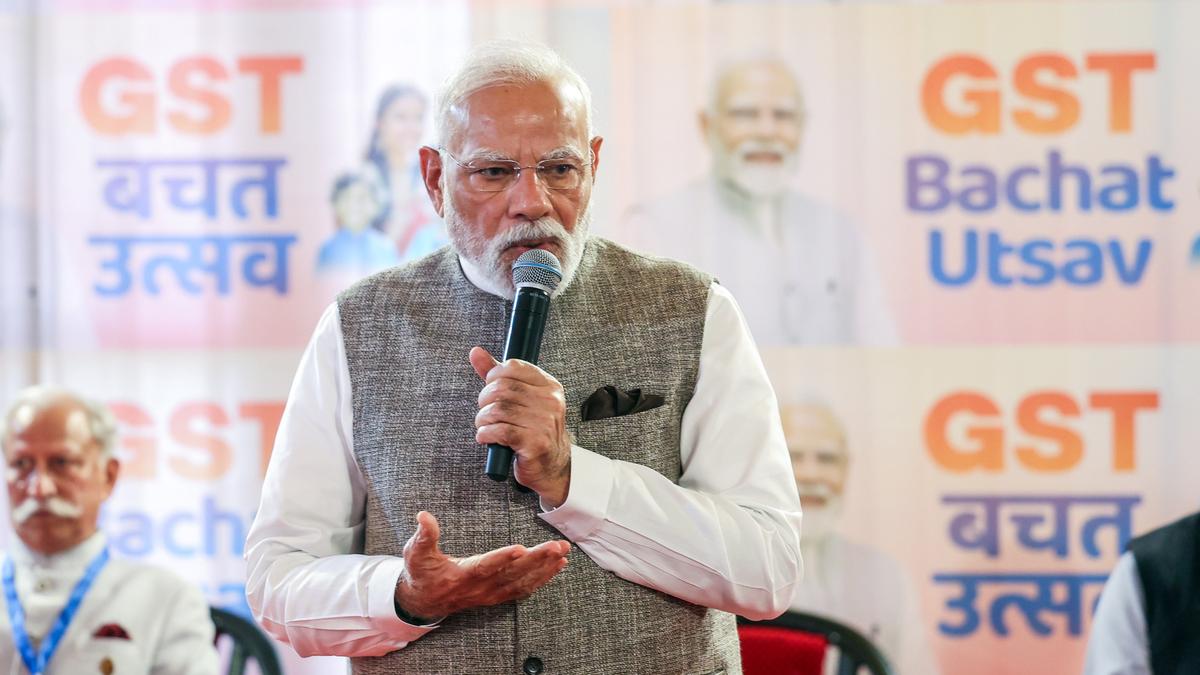
The Prime Minister’s professionalism and work ethic are what make the difference on the ground Praise has been showered on Pr...
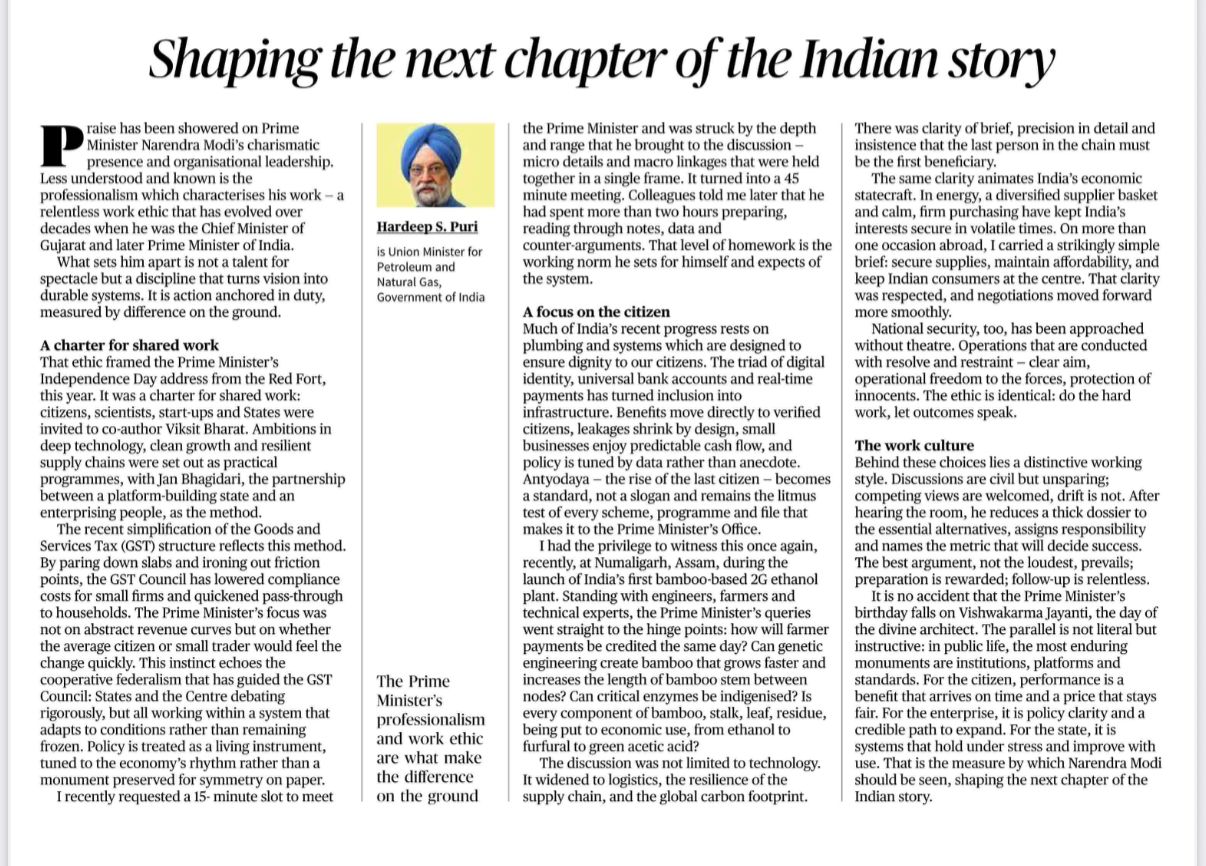
Shaping the next chapter of the Indian story!...
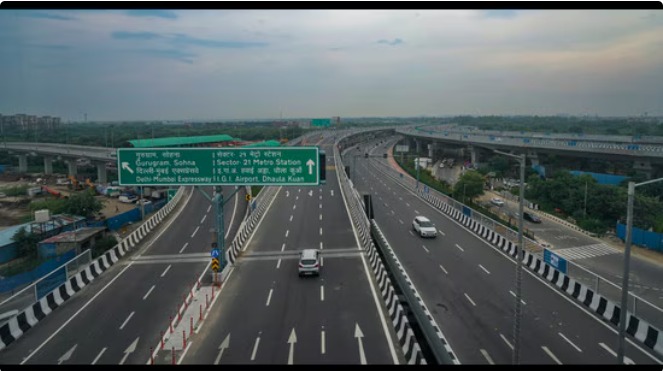
Indian cities are again on that path to being modern yet humane, ambitious yet inclusive, global in outlook yet rooted in our valu...

India’s fact-rich story of resilience, growth and energy security will silence the ‘global doubters’ who call it a ‘dead e...
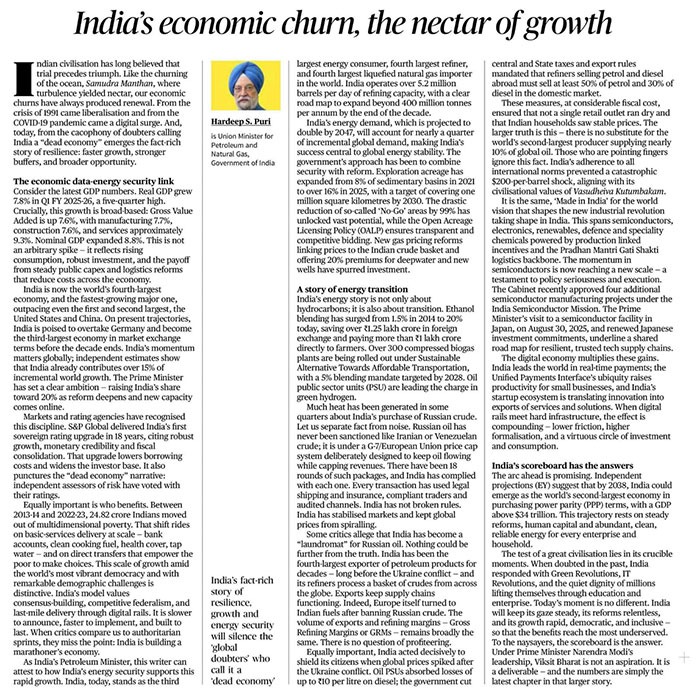
The test of a great civilisation lies in its crucible moments. When doubted in the past, India responded with Green Revolutions, I...
.jpeg)
विकसित भारत के लिए प्रधानमंत्री श्री नरेंद्र मोद...